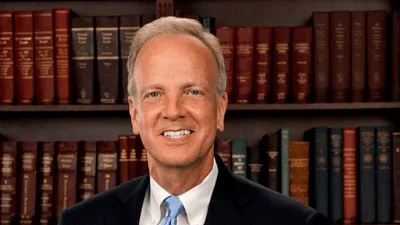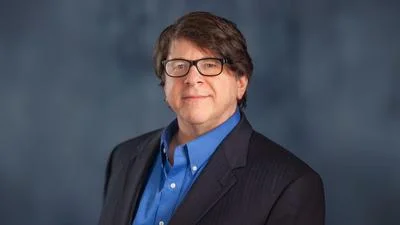The Congressional Record is a unique source of public documentation. It started in 1873, documenting nearly all the major and minor policies being discussed and debated.
“For the People Act (Executive Calendar)” mentioning Jerry Moran was published in the Senate section on pages S1451-S1452 on March 10.
Of the 100 senators in 117th Congress, 24 percent were women, and 76 percent were men, according to the Biographical Directory of the United States Congress.
Senators' salaries are historically higher than the median US income.
The publication is reproduced in full below:
For the People Act
Mr. MORAN. Madam President, I am here this afternoon to speak in opposition to H.R. 1, the so-called For the People Act. Every American--no American should be fooled by the wholesome title of H.R. 1. H.R. 1 is an affront to the U.S. Constitution, and the drastic impact this legislation would have on federalizing elections, restricting free speech, and accelerating the divide in this country--
that divide between left and right, rural and urban, red States and blue States--would be terribly damaging to our Nation.
We often hear that elections have consequences. In November, Americans voted for a Congress that is nearly a 50-50 split between the parties in the House and precisely a 50-50 split in the Senate. If elections have consequences, then the consequence American voters may have had in mind was to encourage Congress to put aside partisan differences and to work together to do its job on their behalf.
Americans did not vote to give one party free rein to implement an unprecedented power grab, to nationalize elections, and to strip power from States and localities from now into perpetuity, forever.
I am a conservative, and I believe in the primacy of individual liberties and in a Federal Government that exercises restraint. I believe that State and local units of government are inherently more responsive to the wishes of our citizens. Article I, section 4 of the Constitution states that ``Time, Places and Manner'' of congressional elections ``shall be prescribed [by the States].'' My adherence to the Constitution thus instructs deference to State governments to oversee their own elections, as they always have and always should.
There are so many problematic and, frankly, unconstitutional aspects of this legislation, particularly as it pertains to the micromanagement of local elections by the Federal Government.
With regard to the bill's intent to Federalize State elections, I draw your attention to page 44, section 1004. Democrats, in sponsoring and pursuing passage of this legislation, seek to eliminate voter identification laws. Voter identification laws have a lot of merit. It is required that you be a U.S. citizen to cast a vote in the United States. American people generally have common sense, and the Gallup poll indicates that 80 percent of Americans support voter ID laws. When you explain to Americans what voter ID really is, they do support it. Yet, under this legislation, voters showing up to the polls without an ID could simply sign a statement claiming they are who they say they are. If you want to dispel the notion that voter fraud occurs in our elections, this is not the place, this is not the way to accomplish that. I don't want our laws to discourage people from voting, but I want people to be legal who do vote.
On page 166, this bill requires that ballots be counted outside a voter's precinct, removing a local government's ability to verify voter rolls. That authority would instead go to a bureaucrat in Washington.
The requirement to allow third parties, including those politically affiliated, to pick up and deliver absentee ballots, known as ballot harvesting, further erodes confidence in elections. Such a requirement is directly at odds with recommendations from a 2005 bipartisan Commission on Federal Election Reform led by former President Jimmy Carter, which recommended that States prohibit this practice due to an increased likelihood of fraud.
H.R. 1 doesn't even keep the bipartisan nature of the Federal Election Commission in place. It alters its structure deliberately to make it work on behalf of the party in power.
One last point on local elections. This bill allows for in-person voting 15 days before an election. This is the typical, the classic unfunded mandate. I talked to local election officials about this provision specifically, and it would kill their budgets, maintaining rent and staff for weeks on end in rural counties across Kansas where, realistically, you might get fewer than a handful of people to show up on a day that far before the election. There are plenty of other ways to vote in advance when necessary. This would create real-world consequences, real consequences in rural America and in rural Kansas. A one-size solution from Washington, DC, does not solve all problems and, in fact, in many instances creates more problems.
While this provision alone probably wouldn't have contributed to voter fraud, this bill does so by prohibiting officials from reviewing voter eligibility or barring local officials from removing ineligible voters from the voter rolls.
It is imperative that we restore America's faith in our elections, and that is why I am a supporter of S. 13, legislation led by our own Senator, Tim Scott of South Carolina, to establish a bipartisan advisory committee to make recommendations that will improve the security, integrity, and administration of Federal elections. This is a measured approach that will help us regain the trust of American voters.
H.R. 1 goes as far to the other end of the spectrum as is imaginable. It drastically changes the rules of our election, implementing every leftwing policy idea pertaining to Federal elections--ideas that are evidently so good, they must be made mandatory. If they were good, they might find their way into existence across the country because they are good, not because the Federal Government requires them.
This legislation would sow immense doubts among voters about the integrity and administration of our elections--something we further do not need. It would corrode our entire system of elections, and for what purpose? Because, simply put, I think Democrats believe passing H.R. 1 would render rural voters, red State voters, impotent and therefore help them win elections.
At a time when our country is so divided, when we should be working together, for example, to end the consequences of the COVID-19 pandemic, to get America vaccinated, and get our economy back on track, this is a very damaging policy to our Republic, and it is contained within the 800 pages of H.R. 1.
I hope my colleagues on both sides of the aisle take time to read and understand this bill and see and determine for themselves what it truly is. I am interested in making sure that all people have the opportunity to vote. All people who are legally eligible to vote, I want them to vote. But we ought to not skew our elections to see that those we want to vote are the only ones who are eligible to do so and that those who are not eligible to vote are able to do so.
I yield the floor.
I suggest the absence of a quorum.
The PRESIDING OFFICER. The clerk will call the roll.
The senior assistant legislative clerk proceeded to call the roll.
Mr. CORNYN. Madam President, I ask unanimous consent that the order for the quorum call be rescinded.
The PRESIDING OFFICER. Without objection, it is so ordered.



 Alerts Sign-up
Alerts Sign-up